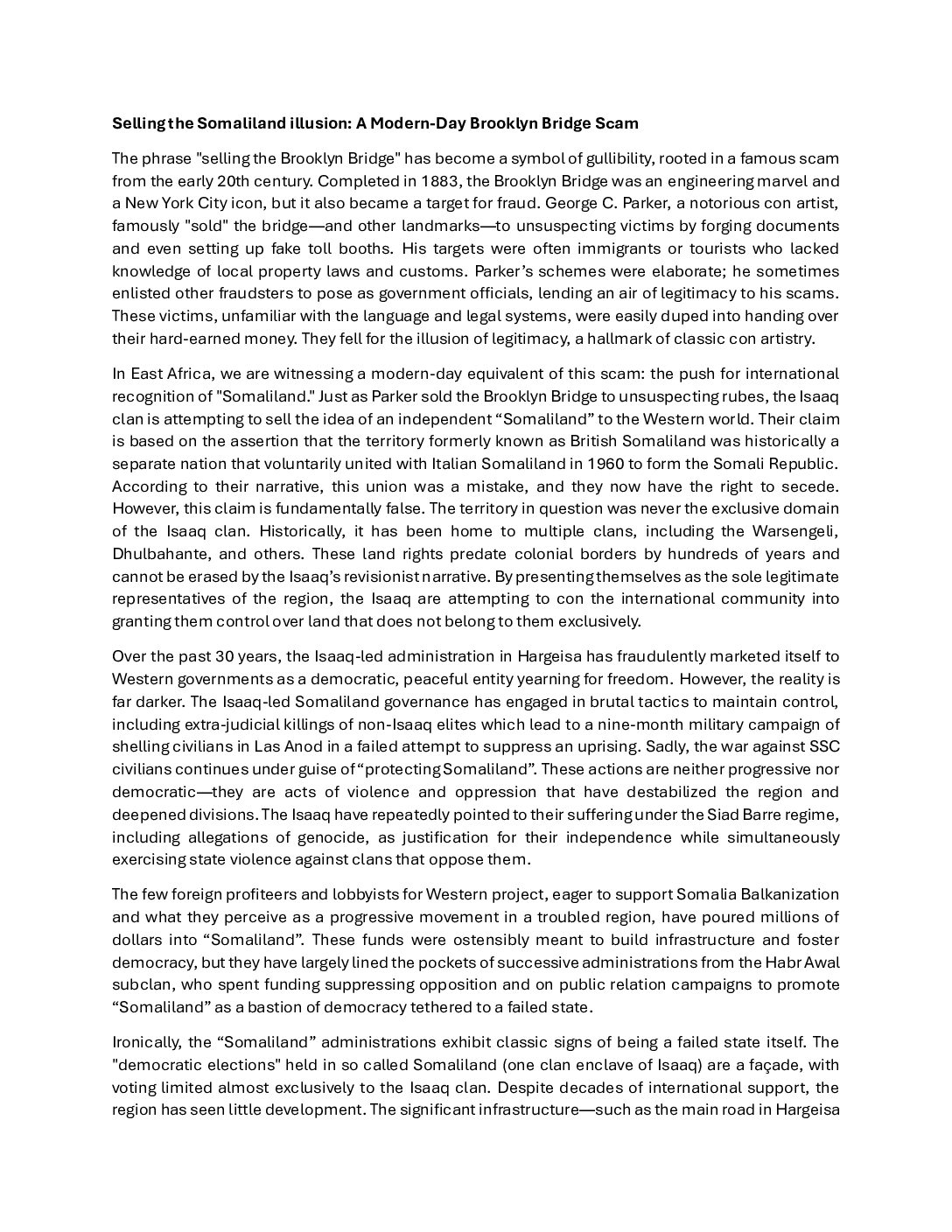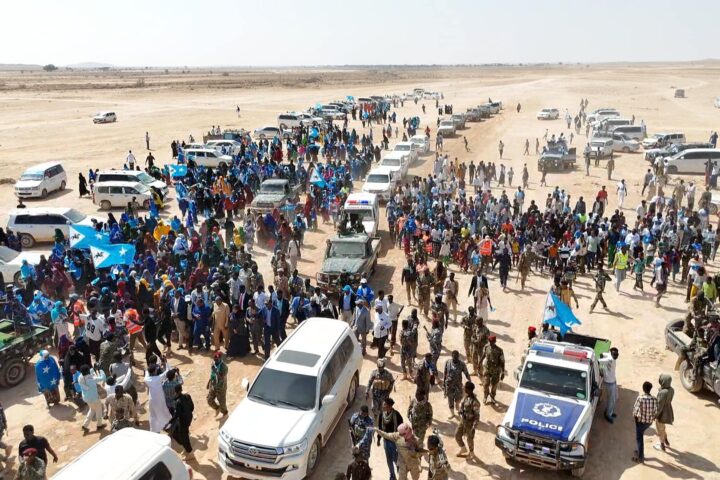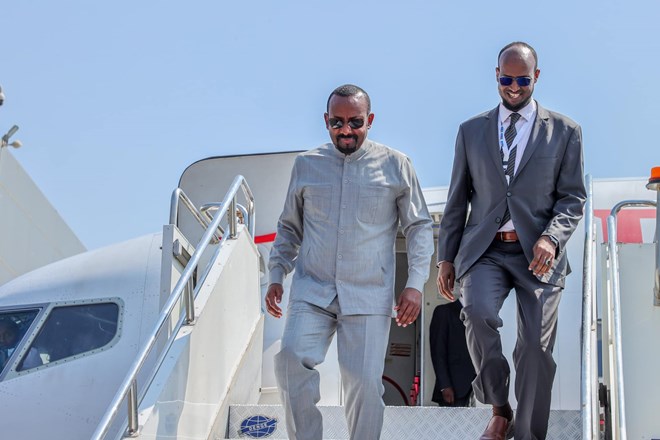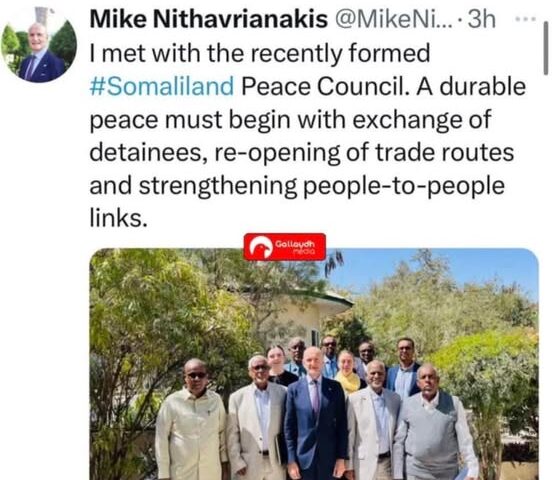Tensions are growing in East Africa as neighbors Ethiopia and Somalia dispute a maritime deal.
In the latest, Addis Ababa has warned its enemies that if any nation tried to invade Ethiopia, there would be harsh punishment.
On September 8, in a televised speech honoring Ethiopia’s sovereignty day, Ethiopian Prime Minister Abiy Ahmed stated, “Anyone intending to invade Ethiopia should not only think just once but 10 times because Ethiopians know how to defend themselves,’’ adding that any “attack will be repelled.”
Abiy may not have aimed his words at any nation in particular, but Ethiopia is involved in a battle with Somalia and Egypt.
The tensions in Somalia revolve around a port contract that landlocked Ethiopia inked with Somalia’s breakaway territory, Somaliland, in January.
It’s a contract that Somalia has branded as an ‘’act of aggression.’’
The tensions with Egypt stem from a long-running dispute over a massive dam that Addis Ababa erected on a Nile River tributary.
Ethiopia’s chief of general staff of the National Defense Force, Birhanu Jula, blamed an “old enemy” over an old issue. On September 8, while attending the 47th anniversary of the Eastern Command in Somali territories, he said:
“Egypt made us landlocked by causing Eritrea to secede from Ethiopia.’’
That is untrue.
Egypt had nothing to do with Ethiopia’s seceding.
On August 28, “Egypt delivered its first military aid to Somalia in over four decades—a move that was likely to deepen strains between the two countries and Ethiopia,” Reuters reported.
Cairo helped with arms and ammunition. It will also send 5,000 soldiers next year to join the AU Support and Stabilization Mission in Somalia, or AUSSOM, which will take over from the AU Transition Mission in Somalia, or ATMIS, and another 5,000 to be sent independently.
Somalia had looked to Egypt for aid safeguarding its waterways after Ethiopia negotiated a maritime accord with its breakaway area, Somaliland, which Somalia claims is part of its territory.
In the pact, Somaliland agreed to provide Ethiopia access to its port and lease some of its coast land to establish a naval station for 99 years. In return, Ethiopia committed to being the first nation to recognize Somaliland, which seceded from Somalia in 1991.
In an exclusive interview with VOA Somali and Horn of Africa services, Richard Riley, the U.S. Ambassador to Somalia, said the U.S., which is the single biggest contributor to Somalia, is aware of the maritime arrangement and is seeking to find ‘’a diplomatic resolution to this present situation.’’
“We do not recognize it [the maritime deal] and are trying to resolve it through diplomatic channels,” Riley added.
He also stated the U.S. would provide full assistance to any operation whose purpose was to make Somalia peaceful.
Eritrea’s route to independence, involving the creation of a national liberation movement and a referendum supervised by the U.N., comprises a horrific 30-year conflict that began in 1961.
Ethiopia declared independence in 1993, leaving the country landlocked. Since then, it has been embroiled in war with its neighbors, notably Egypt, Eritrea, and Sudan. More recently, Somalia has also been entangled in the controversy as Ethiopia attempts to obtain access to the Red Sea.
Ethiopia has renewed a decade-long dispute with Egypt over Addis Ababa’s building of a massive hydroelectric dam on a tributary of the Nile River, the Grand Ethiopian Renaissance Dam, or GERD.
On August 25, Ethiopian Prime Minister Abiy wrote on X about the commencement of the fifth stage of the initial filling of the GERD reservoir and the functioning of the third and fourth turbines of the GERD.
In protest, Egypt said it had exhausted all ways possible to stop the completion and filling of the dam, and it “stands ready to exercise its right to defend and protect the rights and interests of the Egyptian people, per the U.N. Charter,” according to a letter written on September 1 to the U.N. by Egyptian Foreign Affairs Minister Badr Abdel.
Egypt and Sudan consider the construction a severe danger to their essential water resources.
On November 7 of last year, Abiy told a group of businesses that Ethiopia had a right to enter the Red Sea and that “it would do so by force or peace.”






